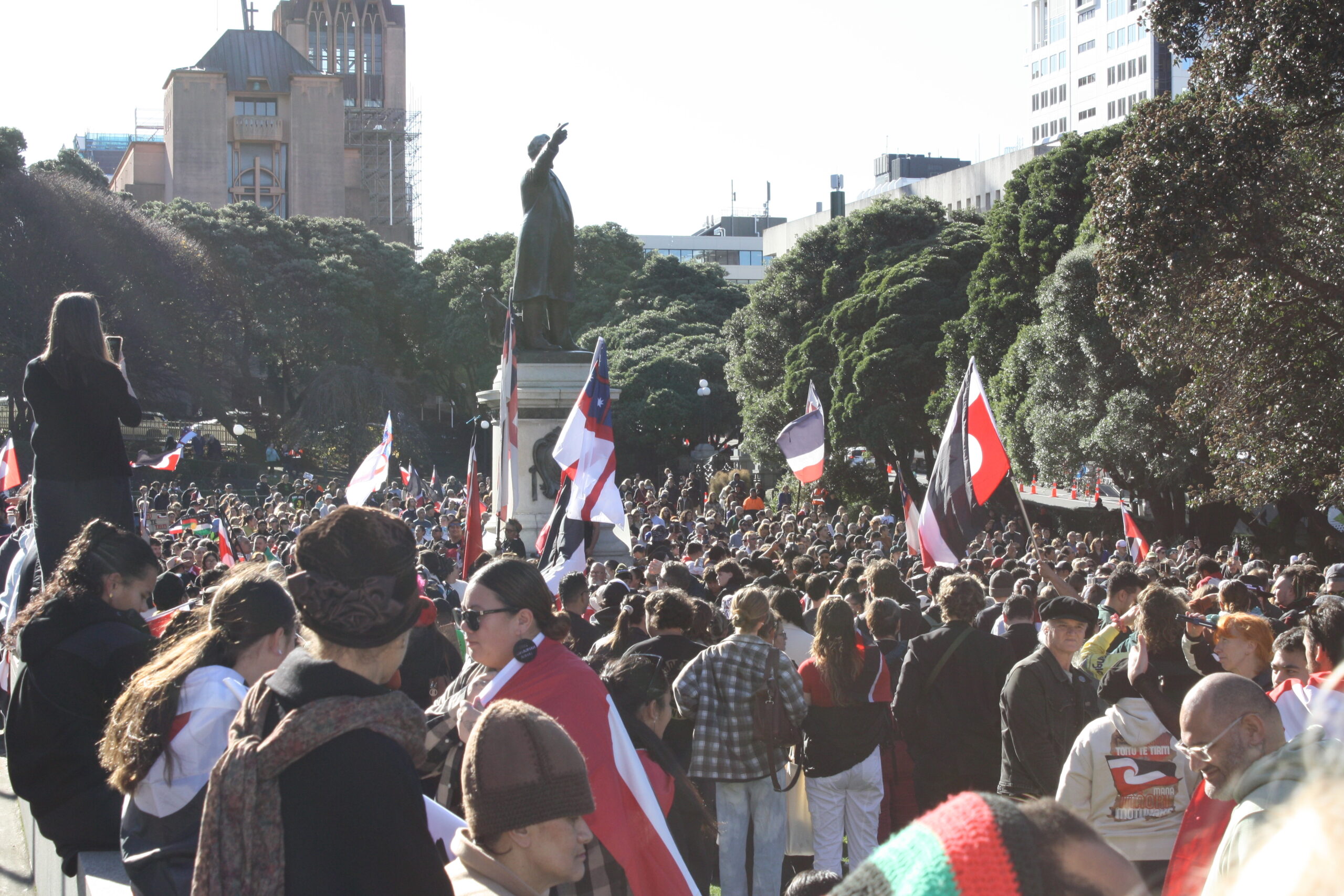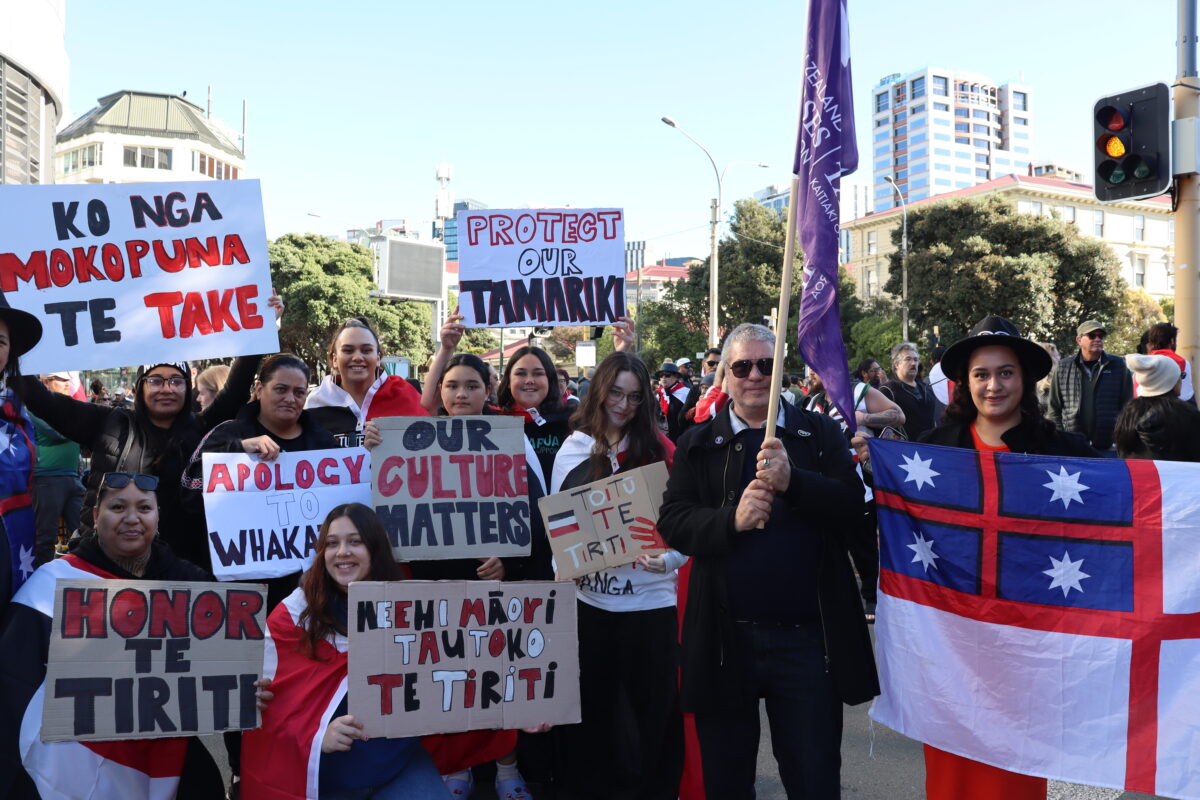Te Pati Māori called on all Māori and tangata Tiriti to join its nationwide day of action on Budget day, May 30, “to prove the might of our Māori economy by disconnecting entirely”. More than 40 locations, as far away as the Gold Coast in Australia, held events.
Māori nurse Keely Vuletic said she was attending the Auckland march as a Māori student nurse and wāhine toa.
“It’s very important for nurses to understand . . . [the significance of] their presence at things like hui and protests,” she said.
‘Nurses are patient advocates — we strive for equity in treatment and outcomes.’
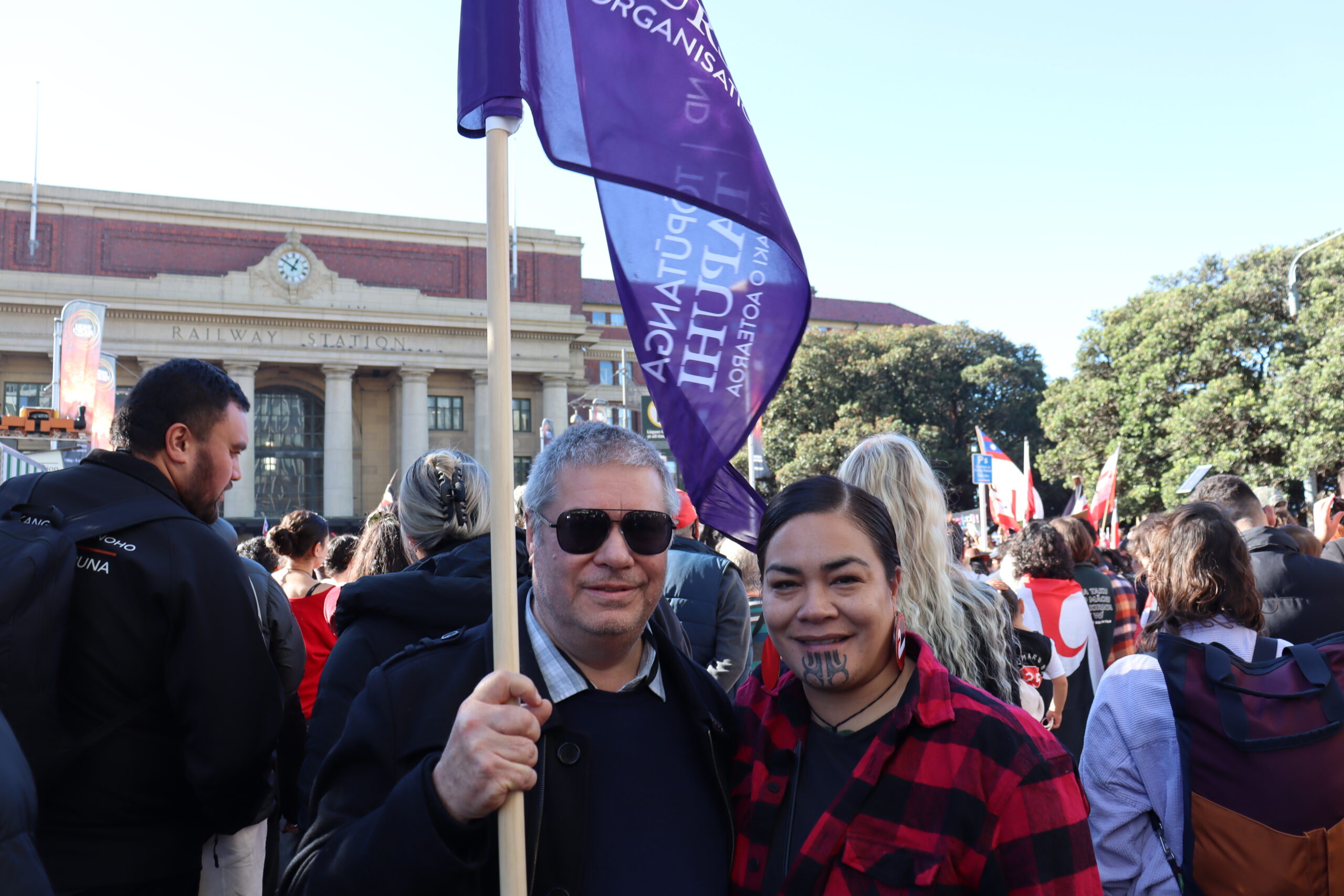
‘This is about Maranga Mai! This is rising up, this is about te Tiriti o Waitangi.’
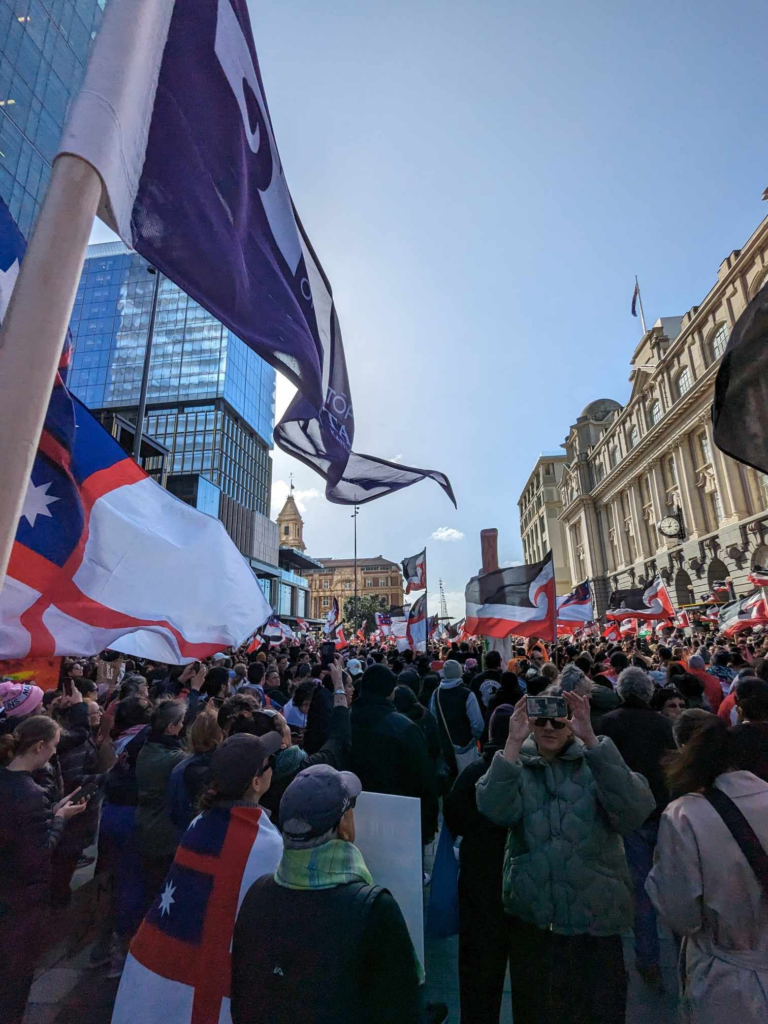
“Protests to do with the Treaty are very important, especially [as] they co-exist in line with our competencies that prove our cultural safety — and that’s why I’m here today.”
South Auckland nurse Ara Aiba said she came to “stand in solidarity with Māori”.
“Nurses are patient advocates — we strive for equity in treatment and outcomes. Unions and nursing organisations have a responsibility to support our patients and our communities.”
NZNO kaiwhakahaere Kerri Nuku, who spoke in Hastings, said the protests represented “everything NZNO stands for”.
‘The feeling was there, the energy was there and it was great.’
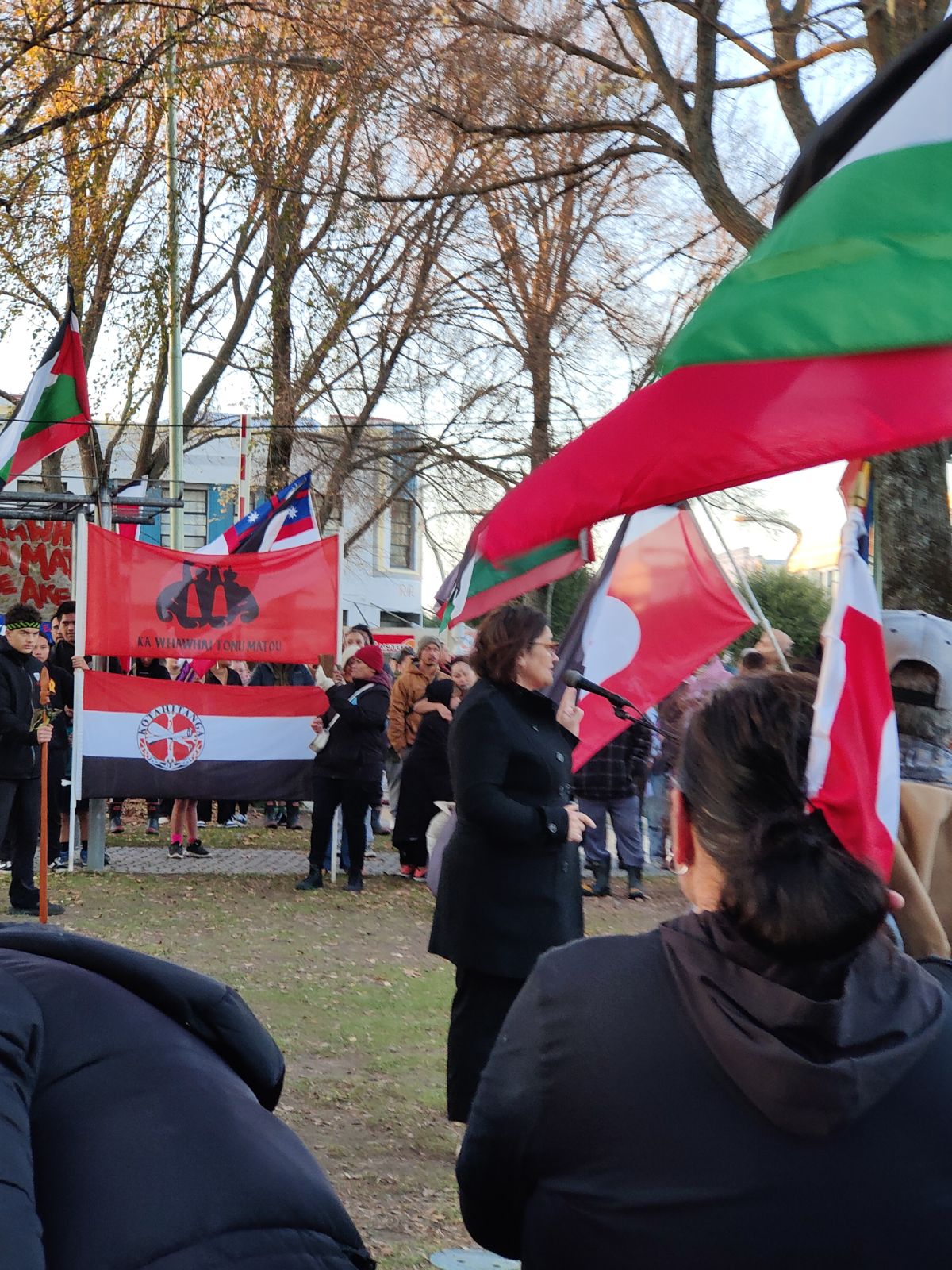
“This is about Maranga Mai! This is rising up, this is about te Tiriti o Waitangi in its authentic implementation — so it was important we had a presence and a voice to represent our communities.”
After a stormy night, Nuku said the sun rose “and this morning everything was just calm and beautiful sky”.
“When we approached, the feeling . . . . the square was chock-a-block with Palestine flags, tino rangatiratanga, He Whakaputanga — it was great. The feeling was there, the energy was there and it was great.”

Nuku said she spoke about the impact of colonisation and how policy redesign had minimised the voice of nurses over centuries.
“I spoke to that and the power of legislation and the need to come together more often than just to have to do this.”
‘Lights dimming’ after Budget 2024
Nuku said that despite a broken health system the money set aside for health over the next four years in today’s Budget was “barely enough to keep the lights on”.
“What we have here is yet another Government perpetuating the problem of underinvestment and failure to plan for the future.”
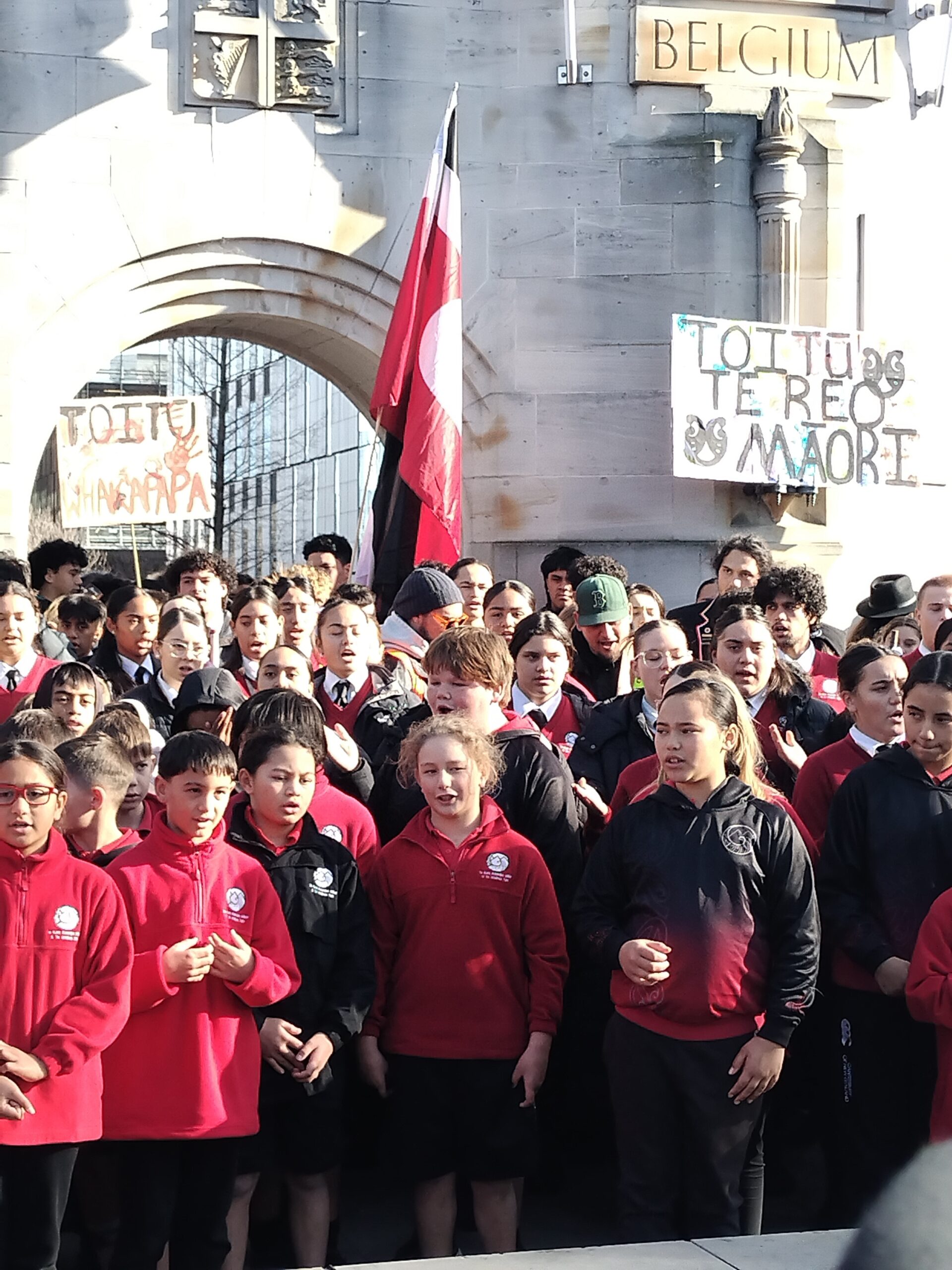
The health budget is $29.637 billion for 2024/25, it was revealed today.
That includes $14.611 billion for Te Whatu Ora hospital and specialist services — a 1.59 per cent increase on last year’s actual spend.
Early NZNO analysis suggests while this meets the health system’s cost status quo, it does little to address safe staffing levels for the nursing workforce.
‘This will increase inequality and every New Zealander will pay for that in the long run.’
There was “virtually nothing” about growing the health workforce, which was astonishing, Nuku said.
“Does the Government seriously believe the nursing shortage crisis has been solved?”
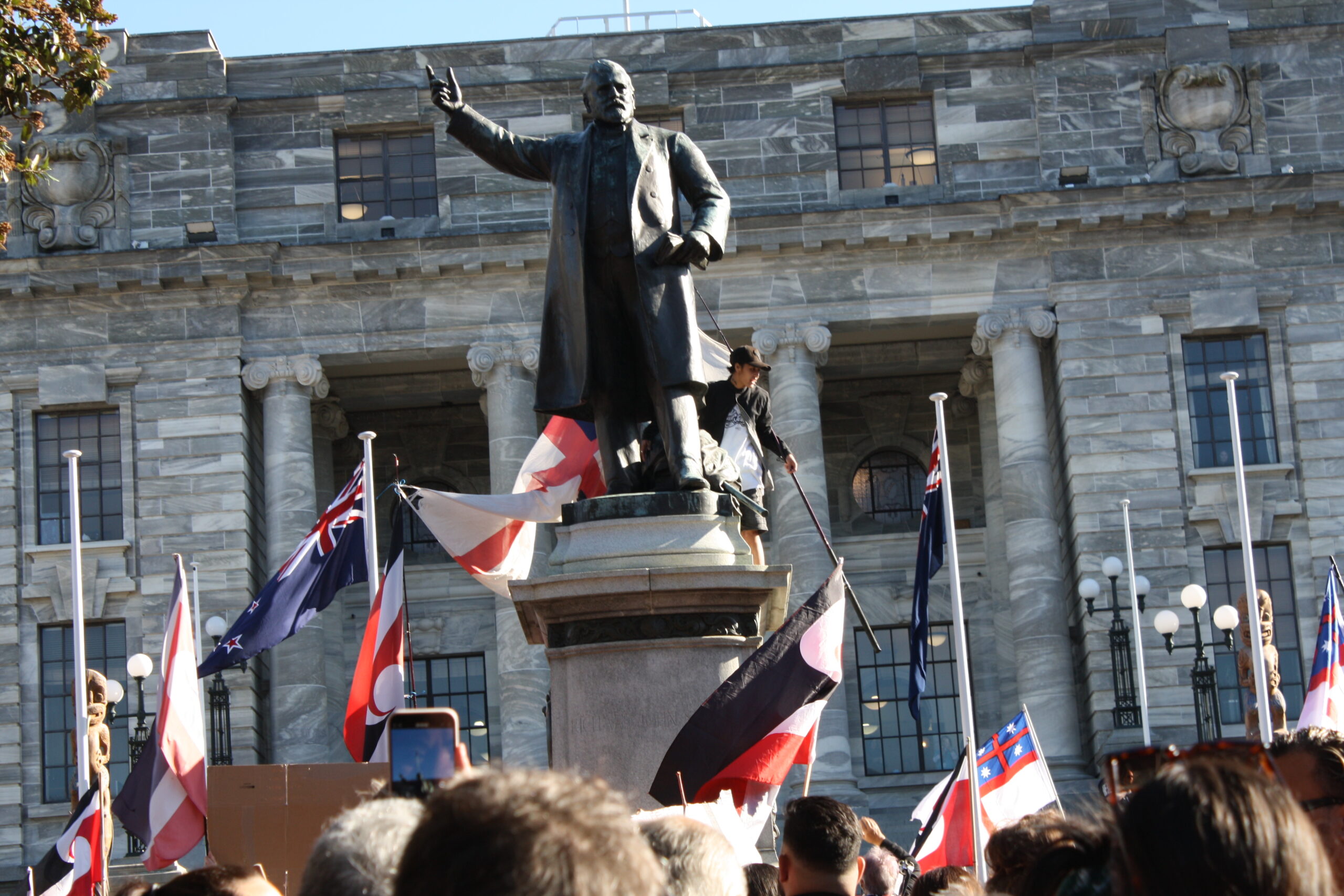
There was not even enough set aside for the Government to meet its own health targets for surgery wait times, cancer treatment and waiting times in ED.
The Budget seemed to be walking back Prime Minister Christopher Luxon’s pre-election promise that all nurses in New Zealand would be paid the same, no matter where they worked.
Its contingency funding was not adequate to meet current pay equity claims — let alone more, Nuku said.
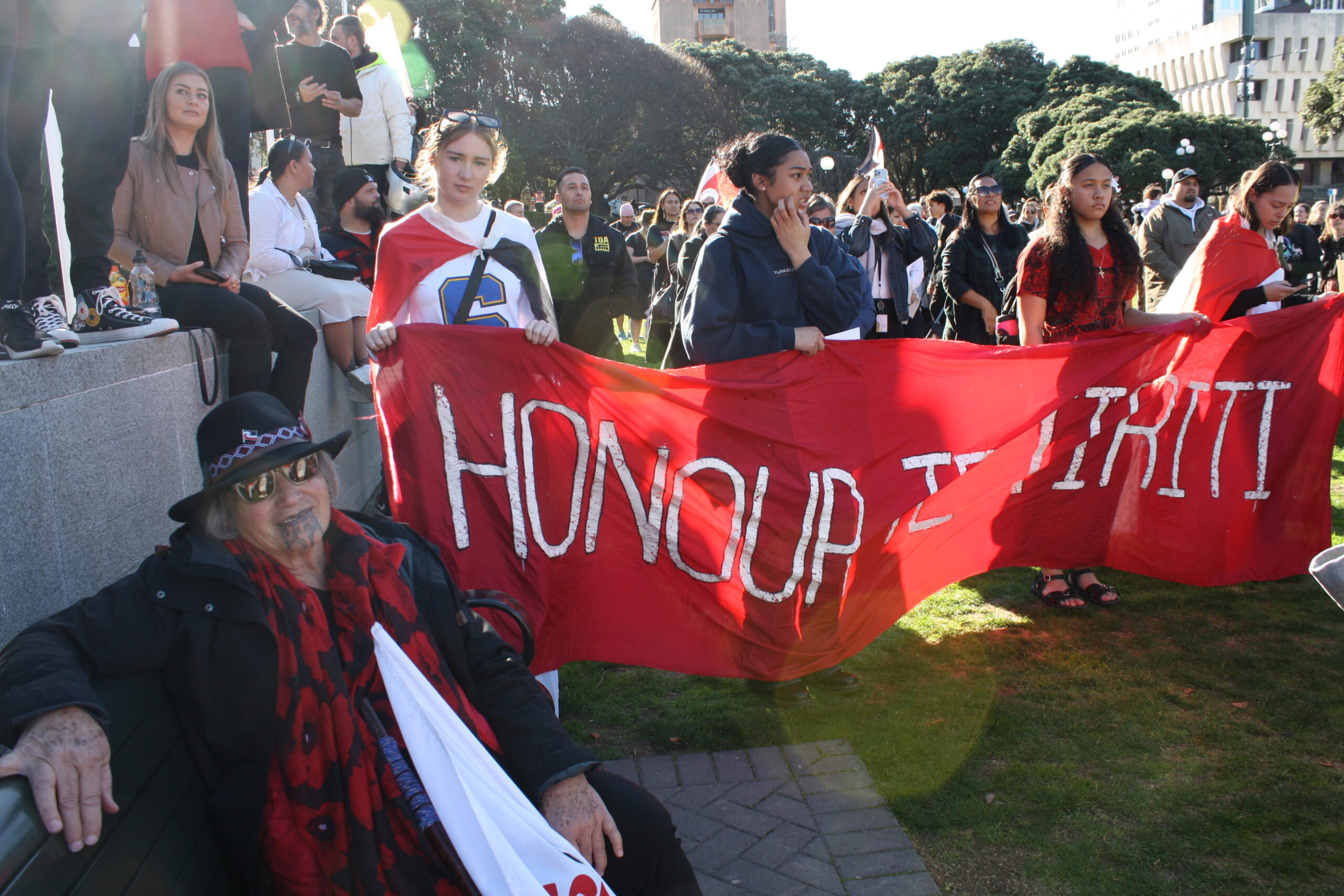
“Until we get pay equity sorted, the problem of overcrowded emergency departments will persist. People turn up in ED because they can’t get community care, and that’s because nursing staff have left for better pay.”
Nor was there enough set aside for hauora Māori, given projected Māori population growth — perpetuating health inequities.
“This will increase inequality and every New Zealander will pay for that in the long run.”
